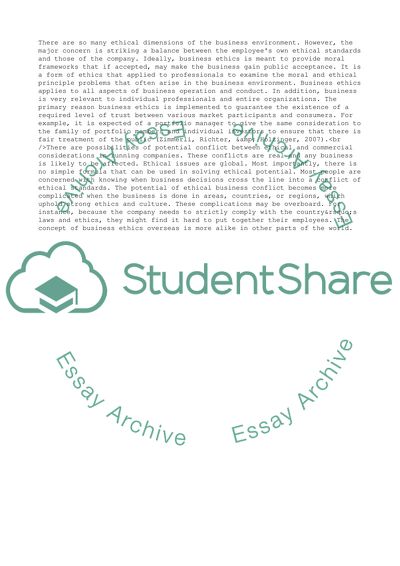Cite this document
(The Idea of Business Ethics Overseas Coursework Example | Topics and Well Written Essays - 4000 words, n.d.)
The Idea of Business Ethics Overseas Coursework Example | Topics and Well Written Essays - 4000 words. https://studentshare.org/business/1820688-business-ethics-overseas
The Idea of Business Ethics Overseas Coursework Example | Topics and Well Written Essays - 4000 words. https://studentshare.org/business/1820688-business-ethics-overseas
(The Idea of Business Ethics Overseas Coursework Example | Topics and Well Written Essays - 4000 Words)
The Idea of Business Ethics Overseas Coursework Example | Topics and Well Written Essays - 4000 Words. https://studentshare.org/business/1820688-business-ethics-overseas.
The Idea of Business Ethics Overseas Coursework Example | Topics and Well Written Essays - 4000 Words. https://studentshare.org/business/1820688-business-ethics-overseas.
“The Idea of Business Ethics Overseas Coursework Example | Topics and Well Written Essays - 4000 Words”. https://studentshare.org/business/1820688-business-ethics-overseas.


